#Health NGO
Explore tagged Tumblr posts
Text
Sightsavers Call For Inclusion, Investment Initiatives For PWDs
By Justina Auta SightSavers Nigeria, an International NGO, has urged government and other stakeholders to prioritise inclusion and investment in initiatives that empower Persons with Disabilities (PWDs) to achieve Sustainable Development Goals (SDGs). It’s Country Director, Dr Joy Shu’aibu, made the call in a statement on Tuesday in Abuja in commemoration of the International Day of Persons with…
0 notes
Text
Aahwahan Foundation Maternity Hospital Hospital for Public Health Care NGO works for Health
vimeo
1 note
·
View note
Text
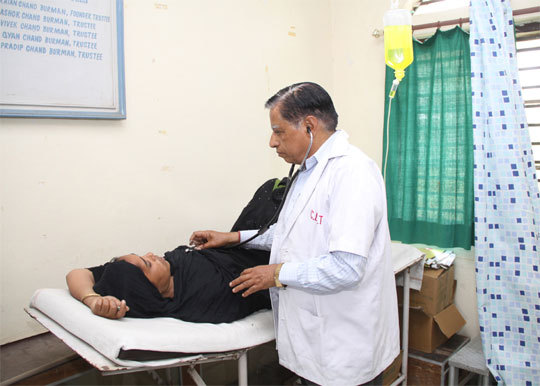
NGO working for Health | Best Health NGO in UP, India - SUNDESH
SUNDESH is a Healthcare NGO in India working for people in rural areas by providing them free medical services. Visit to learn more about our Health programs.
0 notes
Text
HOPE ASSISTS THE STORM EFFECTED VICTIMS OF THATTA & SUJAWAL Recently due to the unpredictable weather and monsoon climate, certain areas of interior Sindh had been affected by heavy rain and cyclone. Which caused severe loss to the locals living in those areas. The shelters of their houses had collapsed due to which all their belongings and food items have been washed away. These poor people…
View On WordPress
0 notes
Text

#depopulation agenda#totalitarianism#communism#technocracy#deep state#united nations#world economic forum#world health organization#bilderberg#ngo
109 notes
·
View notes
Text
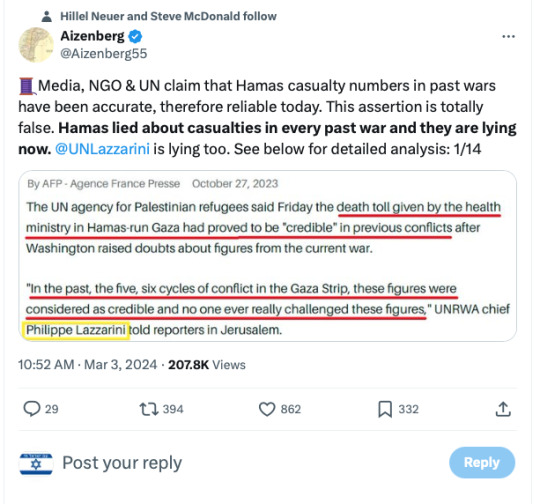


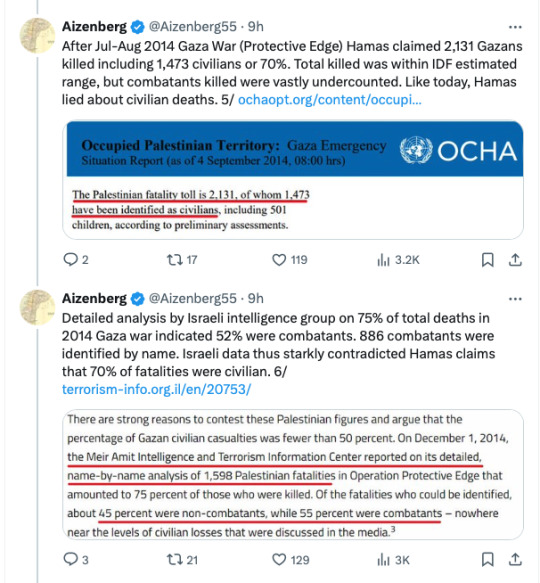
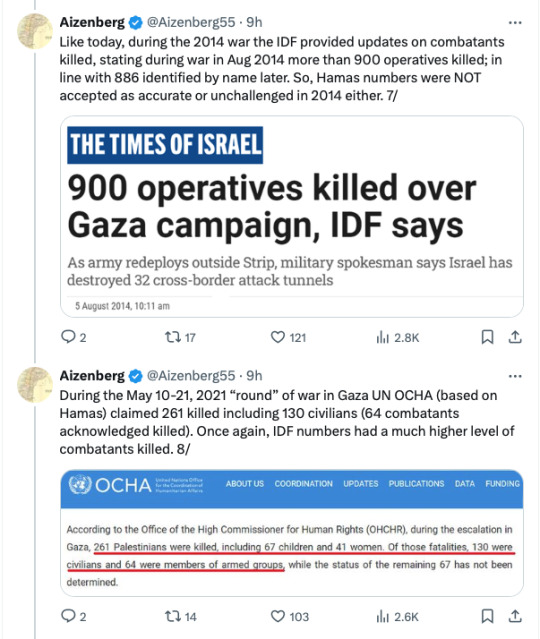

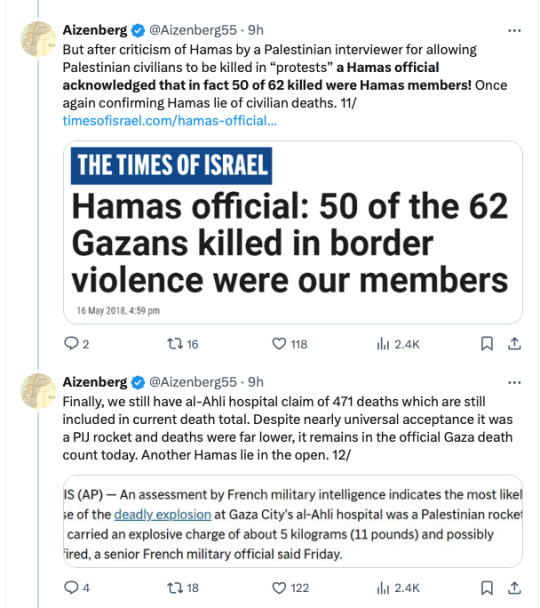

Source
144 notes
·
View notes
Text
Innovative CSR Strategies: The Benefits of Collaborating with Marpu Foundation
Corporate Social Responsibility (CSR) is a key element of modern business practice, allowing companies to create positive social and environmental impact while simultaneously achieving long-term growth. Collaboration with organizations like the Marpu Foundation can significantly enhance CSR efforts.

Kadiri Raghu Vamsi, popularly known as the Environment Man, is the Founder of the Marpu Foundation. The Marpu Foundation is known for its work in social impact initiatives, particularly those focused on education, health, and community empowerment. Here are several benefits of partnering with the Marpu Foundation:
1. Enhancing Social Impact
By collaborating with the Marpu Foundation, businesses can contribute to impactful social causes, particularly in underserved communities. Whether through educational programs, healthcare initiatives, or environmental conservation efforts.
2. Strengthening Brand Reputation
By partnering with a reputable and trusted organization like the Marpu Foundation, businesses can enhance their brand reputation.
3. Boosting Employee Engagement and Satisfaction
Partnering with the Marpu Foundation can provide employees with opportunities to participate in volunteer activities or support charity initiatives, fostering a sense of purpose and pride in their work.
4. Long-Term Sustainability
The Marpu Foundation’s work is often focused on creating sustainable, long-term solutions for the communities it serves.
5. Measuring Impact and Transparency
The Marpu Foundation’s evaluation frameworks ensure that the outcomes of the projects are tracked and measurable. This transparency allows companies to showcase their CSR achievements.
Some programs by Marpu Foundation
1. Education for All (EFA) Program
✓ Objective: The core aim of the EFA program is to ensure that children from marginalized communities have access to quality education.
✓ Features:
Scholarship programs for underprivileged children to help cover school fees, uniforms, and learning materials.
2. One notable health-related initiative by Marpu Foundation is their Mobile Health Clinics program. This initiative involves setting up mobile medical camps that travel to remote and underserved areas, providing free health check-ups, vaccinations, and basic medical treatments.
Conclusion
Collaborating with the Marpu Foundation offers companies an effective way to enhance their CSR strategies while making a real difference in society.
- Garima Jain
2 notes
·
View notes
Text

#gravity falls#hatsune miku#bill cipher#logan howlett#trending#mabel pines#beautiful hair#dead boy detectives#basketball#the boys#history#big tiddy goth gf#ffxiv screenshots#vfx#gdp#gaming#gdragon#josh gvf#gd#bnha bkdk#beauttiful girls#cats of tumblr#gshade#x statix#vj visuals#mental health#hell is a teenage girl#dc universe#ngo#interview with the vampire
3 notes
·
View notes
Text
Striving to Make the World a Better Place: The Journey of Lovely Foundation and Its Commitment to Sarbat Da Bhala
Originally Published by Lovely Foundation : https://medium.com/@lovelyfoundation/striving-to-make-the-world-a-better-place-the-journey-of-lovely-foundation-and-its-commitment-to-bc5adaa82b38
“May Everyone Prosper” is the motto of “Sarbat Da Bhala,” which our Gurus have always upheld. Following in their footsteps, we uphold the same credo in service to mankind. We begin our journey with the wish: “May everyone prosper, may no one sleep hungry, may the light of education illuminate every home, may no human stay deprived of basic necessities, and may our environment grow and glow till eternity.”
For us, Sarbat Da Bhala is not merely a doctrine but a way of life, as exemplified by my mother. Throughout her life, she followed a path of helping as many fellow humans as possible. Inspired by her selflessness, I, Sanbir Kapoor, established the Lovely Foundation to continue her legacy of service to humanity and Mother Earth.

The Principle of Sarbat Da Bhala
The principle of Sarbat Da Bhala is deeply rooted in the teachings of our Gurus. It emphasizes universal well-being and prosperity, urging us to think beyond our personal interests and work towards the greater good. This philosophy inspires us to extend our hands to those in need, ensuring that everyone has the opportunity to live a life of dignity and happiness.
My mother embodied this principle in every aspect of her life. She was always ready to help others, whether it was through providing food to the hungry, offering shelter to the homeless, or supporting education for underprivileged children. Her compassion and generosity left a profound impact on everyone she met, and her actions were a testament to the true spirit of Sarbat Da Bhala.
The Birth of Lovely Foundation
The Lovely Foundation was born out of a desire to honor my mother’s legacy and her unwavering commitment to helping others. I wanted to create an organization that would carry forward her mission of making the world a better place. The foundation was established with a vision to serve humanity and protect our environment, guided by the principle of Sarbat Da Bhala.

Our Focus Areas
Education
Communities and people may be transformed by education, which is a potent instrument. No matter their socioeconomic status, we at Lovely Foundation think all children should have access to a high-quality education. Our hard efforts are directed towards guaranteeing that children hailing from impoverished households are provided with the necessary tools and guidance to excel in school.
Among our educational endeavors are the sponsoring of educational programs, school supplies, and scholarships. We work together with educators and educational institutions to establish a setting that is favorable for kids to study. We want to end the cycle of poverty and enable the next generation to realize their full potential by making investments in education.
Health
Good health is fundamental to a fulfilling life. Unfortunately, many people in our society lack access to basic healthcare services. At Lovely Foundation, we are committed to improving health outcomes for vulnerable populations by providing medical care, health education, and support services.
Preventive care, early illness detection, and treatment are the main focuses of our health services. To encourage healthy living, we plan health camps, immunization drives, and awareness programs. We also offer financial support to people who are unable to pay for medical care. Our goal in tackling health inequalities is to guarantee that every individual may live a healthy and fruitful life.
Food and Nutrition
Nobody ought to starve to death. Sadly, food insecurity is still a major problem in a lot of places. By giving nourishing meals to people in need, Lovely Foundation works to end hunger and malnutrition. To make sure that no one is denied this essential requirement, we run food banks, community kitchens, and meal distribution programs.
We also provide teaching sessions on sustainable agriculture and healthy eating as part of our food and nutrition initiatives. In order to assist community gardens and encourage organic agricultural methods, we collaborate with nearby farmers. Our goals are to lessen the burden of diet-related illnesses and build healthier communities by tackling food insecurity and encouraging proper nutrition.
Environment
All living things depend on a healthy environment for their well-being. Our goal at Lovely Foundation is to preserve and safeguard our natural resources. We think it is our duty to protect the environment and make sure that coming generations may live in a healthy and sustainable setting.
Our environmental initiatives focus on reducing pollution, conserving biodiversity, and promoting sustainable practices. We organize tree planting drives, clean-up campaigns, and environmental education programs. We also advocate for policies that protect the environment and support renewable energy sources. By taking action to address environmental issues, we hope to create a greener and more sustainable world.
The Power of Community
One of the key strengths of Lovely Foundation is our community of dedicated volunteers. Our volunteers come from diverse backgrounds, united by a common goal of making a positive impact on society. They contribute their time, skills, and resources to support our initiatives and help us reach more people in need.

Stories of Impact
Over the years, Lovely Foundation has touched the lives of many individuals and communities. Here are a few stories that highlight the impact of our work:
A Brighter Future for Neha: Neha, a young girl from a low-income family, had dreams of becoming a doctor. However, her family struggled to afford her education. Through our scholarship program, Neha received the financial support she needed to continue her studies. Today, she is pursuing her medical degree and is on her way to achieving her dreams.
Health and Hope for Ramesh: Ramesh, a daily wage worker, suffered from a chronic illness that left him unable to work. With no savings and limited access to healthcare, his condition worsened. Our health team provided Ramesh with medical treatment and ongoing support. He is now on the road to recovery and able to support his family once again.
Nutritious Meals for Rekha: Rekha, a single mother, struggled to provide enough food for her children. They often went to bed hungry, affecting their health and well-being. Through our meal distribution program, Rekha and her children received regular, nutritious meals. This support has given them the strength and energy to thrive.
Greening the Community: In a neighborhood affected by pollution, we launched a tree planting drive to improve air quality and create green spaces. Our volunteers planted hundreds of trees, transforming the area into a lush, green oasis. The community now enjoys cleaner air and a healthier environment.
Looking Ahead
We are always looking for fresh approaches to broaden our influence and reach as we travel forward. We’re looking into joint ventures with other organizations, utilizing technology to enhance our offerings, and recruiting additional volunteers to support our mission. Our objective is to bring about a beneficial transformation that spreads far beyond the people who directly benefit from our initiatives.
How You Can Get Involved
There are many ways you can support the Lovely Foundation and contribute to our mission of making the world a better place. Here are a few ways you can get involved:
Volunteer: Join our community of volunteers and participate in our programs. Your time and skills can make a significant difference in the lives of others.
Donate: Your financial contributions help us fund our initiatives and reach more people in need. Every donation, no matter how small, makes an impact.
Advocate: Spread the word about our work and advocate for the causes we support. Your voice can help raise awareness and inspire others to take action.
Collaborate: If you represent an organization, consider partnering with us to amplify our efforts. Together, we can achieve greater impact and drive meaningful change.
Conclusion
Lovely Foundation’s path serves as a monument to the strength of dedication, compassion, and community. We work to improve the world little by little, guided by the tenet of Sarbat Da Bhala. We are improving people’s lives on an individual and community level with the help of our partners, donors, and volunteers. We are committed to fulfilling our purpose of assisting people and safeguarding the environment even as we look to the future. We can all live in a happier, healthier, and more successful society if we work together.
#ngo in mohali#education ngo in mohali#food donation ngo#health ngo in india#nonprofit#charity#donation
2 notes
·
View notes
Text
Enhancing CSR Impact through Collaboration with Marpu Foundation
The importance of corporate social responsibility (CSR) is higher than ever in the quickly changing business environment of today. Working together with like-minded organizations is crucial as companies look to improve society and the environment. The Marpu Foundation is one such collaboration that has a great deal of potential to increase the impact of CSR.
At the forefront of social change and sustainable development, the Marpu Foundation | NGO has established itself as a beacon of hope for communities worldwide. With a diverse portfolio of initiatives spanning education, healthcare, environmental conservation, and more, the foundation embodies a commitment to creating a better future for all.
"Marpu" - a synonym for transformation - was established by the respected National Youth Awardee, Mr. Kadiri Raghu Vamsi. Marpu Foundation | NGO focuses on harnessing the potential of individuals to bring about positive change in the world. With a team committed to effecting change and providing a supportive space for all, the Marpu Foundation earned the title of "The Best NGO in India" in 2020.

Emphasizing employee involvement and volunteering is one of the main features of the Marpu Foundation's CSR approach. It has over 80,261 volunteers and over 10,245,120 beneficiaries operating from 39 locations in 15 states. The themes of their work center on environmental sustainability, economic development, social development, and partnership for the goals.
Partnering with the Marpu Foundation not only enhances corporate social responsibility (CSR) efforts but also significantly contributes to advancing Sustainable Development Goals (SDGs). Marpu Foundation's projects are exemplary models of sustainable development, promoting social, economic, and environmental well-being. Here's how partnering with Marpu can boost CSR efforts and support SDGs, illustrated through some of their impactful projects:
1. Education Initiatives (SDG 4 - Quality Education): Marpu Foundation's education initiatives focus on providing quality education to underserved communities. Partnering with Marpu in these initiatives allows corporations to support SDG 4 by investing in programs that enhance access to education, improve literacy rates, and empower marginalized groups. For example, a partnership could fund the establishment of schools in rural areas, provide scholarships for underprivileged students, or support vocational training programs.

2. Clean Water and Sanitation (SDG 6 - Clean Water and Sanitation): Marpu Foundation undertakes projects aimed at ensuring access to clean water and sanitation facilities, particularly in areas facing water scarcity and poor sanitation. Collaborating with Marpu in such projects enables companies to address SDG 6 by funding the construction of water infrastructure, implementing water purification systems, or promoting hygiene awareness campaigns in communities lacking access to clean water and sanitation.
3. Women's Empowerment (SDG 5 - Gender Equality): Marpu Foundation is committed to promoting gender equality and women's empowerment through various initiatives such as skill development programs, entrepreneurship training, and advocacy for women's rights. Partnering with Marpu in these endeavors allows corporations to support SDG 5 by investing in projects that foster economic independence and social empowerment among women, thereby contributing to creating more inclusive and equitable societies.
4. Environmental Conservation (SDG 13 - Climate Action): Marpu Foundation actively engages in environmental conservation efforts aimed at mitigating climate change and preserving biodiversity. Corporations can enhance their CSR initiatives by partnering with Marpu in projects such as afforestation campaigns, sustainable agriculture practices, or renewable energy projects. By supporting these initiatives, companies can align with SDG 13 goals and demonstrate their commitment to environmental stewardship.

5. Healthcare Access (SDG 3 - Good Health and Well-being): Marpu Foundation works towards improving healthcare access and promoting health awareness in underserved communities. Collaborating with Marpu in healthcare projects allows corporations to contribute to SDG 3 by funding medical camps, establishing healthcare centers, or supporting vaccination drives. By investing in healthcare initiatives, companies can help reduce healthcare disparities and improve the overall well-being of communities.
In conclusion, partnering with the Marpu Foundation offers corporations a unique opportunity to bolster their CSR efforts while making meaningful contributions towards achieving the Sustainable Development Goals. Through strategic collaborations with Marpu, companies can address pressing social, economic, and environmental challenges, driving positive change and creating a more sustainable future for all.
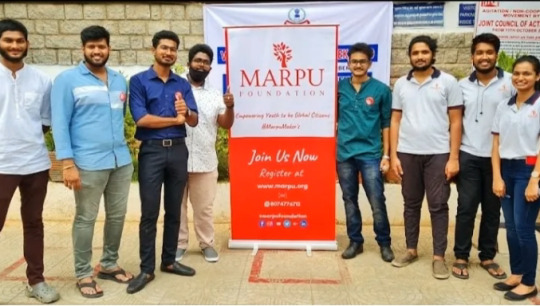
#Enhancing CSR Impact through Collaboration with Marpu Foundation#CSR impact#csr activities#csr#marpu foundation#best ngo in india#sustainable development#volunteering#largest volunteer organisation#quality education#gender equality#good health#economic growth#poverty#inequality#climate action#water and sanitation
2 notes
·
View notes
Text
Download website template for non profit, NGO or fundraiser organization.
#fundraiser#ngo#donations#donate if you can#child health#volunteering#charity#donate#gofundme#church#social services
4 notes
·
View notes
Text
Todays! mental health workshop was all about how peer pressure is an important factor in determining healthy and unhealthy choices in adolescents .
Need Support From CSR / Companies and Philanthropist For Our Project. Donor Please Contact Us At : [email protected]
Whatss app 079823 16660
youtube
#non profit#mental health#explore page#fyp#volunteer#heeals india#heeals#ngo#bharat ngo#peer pressure#donation#reel#videoviral#viral#trending video#tumblog#Youtube
2 notes
·
View notes
Text
The Vanishing Waters: Unveiling the Alarming Rate of Degradation in Our World's Water-Related Ecosystems
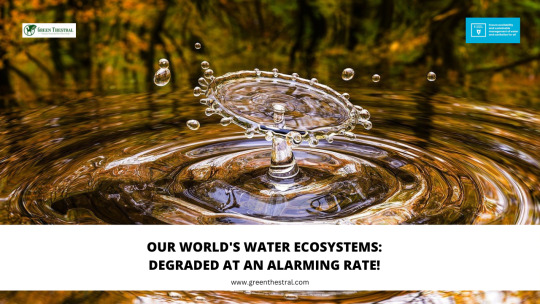
Our planet's water-related ecosystems are the lifeblood of biodiversity and play a crucial role in sustaining life on Earth. These diverse habitats, ranging from serene lakes and flowing rivers to vibrant coral reefs and teeming wetlands, provide essential services that are essential for human survival and the well-being of countless species. However, a looming crisis threatens the very existence of these vital ecosystems. The world's water-related ecosystems are being degraded at an alarming rate, putting our environment, wildlife, and even our own future at risk. In this article, we will delve into the causes, consequences, and potential solutions to combat this pressing issue and ensure the survival of these precious ecosystems.
The Magnitude of the Crisis
The degradation of water-related ecosystems is a global challenge that requires immediate attention. Around the world, these habitats are facing a range of threats, including pollution, habitat destruction, overfishing, climate change, and invasive species. These factors, often interconnected, are wreaking havoc on the delicate balance within these ecosystems.
Pollution: A Slow Poison
One of the leading culprits behind the deterioration of water-related ecosystems is pollution. Industrial waste, agricultural runoff, and untreated sewage find their way into our waters, contaminating them with harmful chemicals and plastics. These pollutants not only harm aquatic life but also have far-reaching consequences for humans who rely on these water sources for drinking and agriculture.
Habitat Destruction: Losing Our Natural Havens
The relentless expansion of human activities, including deforestation and urbanization, is rapidly encroaching upon the habitats of various aquatic species. Wetlands are drained, mangroves are cleared, and rivers are diverted, disrupting the natural flow and interconnectedness of these ecosystems. As a result, countless species lose their homes and face the threat of extinction.
Overfishing: Depleting the Ocean's Bounty
Overfishing is pushing marine ecosystems to the brink of collapse. Unregulated and unsustainable fishing practices, coupled with the demand for seafood, are causing a decline in fish populations, disrupting food chains, and jeopardizing the livelihoods of coastal communities that depend on fishing for survival.
Climate Change: The Silent Menace
Perhaps the most insidious threat to water-related ecosystems is climate change. Rising global temperatures lead to the melting of polar ice caps, causing sea levels to rise and intensifying storms and floods. These changes have devastating effects on coastal areas, submerging critical habitats, and causing the loss of biodiversity.
Consequences of Ecosystem Degradation
The degradation of water-related ecosystems has severe consequences for both the environment and human societies. As these ecosystems collapse, they disrupt the services they provide, such as water purification, flood control, and carbon sequestration, impacting human health and economies worldwide.
Biodiversity Loss: A Precarious Chain Reaction
Water-related ecosystems are home to a vast array of species, many of which are uniquely adapted to these environments. As these habitats deteriorate, many species face extinction, triggering a chain reaction that affects the entire ecosystem. The loss of one species can have cascading effects on others, disrupting the delicate web of life.
Threats to Food Security
Fisheries, both marine and freshwater, play a significant role in providing sustenance to billions of people around the globe. The depletion of fish populations due to overfishing and habitat destruction threatens the food security and livelihoods of millions, particularly in developing countries that heavily rely on fish as a primary protein source.
The Impact on Human Health
The quality of our water is directly linked to our health. Polluted water can cause waterborne diseases, affecting millions of people each year. Additionally, the loss of water-related ecosystems reduces the availability of clean water for drinking and sanitation, exacerbating the global water crisis.
Rising Economic Costs
The degradation of water-related ecosystems comes with a hefty price tag. Loss of fisheries, increased frequency of floods, and the decline of coastal protection services result in billions of dollars in economic losses each year. The expenses related to ecosystem restoration and mitigation efforts add further strain on already burdened economies.
Restoring the Balance: A Call to Action
Despite the grim picture painted by the state of our water-related ecosystems, there is hope. By acknowledging the urgency of the situation and taking collective action, we can begin the process of restoring the balance and ensuring the survival of these vital habitats.
Strengthening Environmental Regulations
Governments and policymakers must implement and enforce stringent environmental regulations to control pollution, protect habitats, and promote sustainable fishing practices. Strengthening international cooperation on environmental issues is also essential, as water-related ecosystems transcend national boundaries.
Sustainable Water Management
Water is a finite resource, and sustainable water management is key to ensuring the survival of water-related ecosystems. Implementing efficient irrigation systems, reducing water wastage, and prioritizing the conservation of natural water bodies are vital steps in this direction.
Embracing Renewable Energy
Transitioning to renewable energy sources can significantly mitigate climate change and its impact on water-related ecosystems. Embracing solar, wind, and hydroelectric power can reduce greenhouse gas emissions and limit the rise in global temperatures.
Community Involvement and Education
Engaging local communities in conservation efforts is crucial for the success of any environmental initiative. Raising awareness about the importance of water-related ecosystems and involving communities in restoration projects fosters a sense of ownership and responsibility.
Supporting Conservation Organizations
Supporting organizations like Green Thestral Inc. that are dedicated to environmental conservation can make a significant difference. Contributing to their efforts through donations or volunteer work helps fund critical projects aimed at protecting and restoring water-related ecosystems.
Conclusion
The state of the world's water-related ecosystems demands urgent attention and action from all corners of society. As individuals, communities, and nations, we hold the power to turn the tide and secure the future of these invaluable habitats. By addressing the root causes of degradation, promoting sustainable practices, and supporting conservation initiatives, we can pave the way for a healthier planet and a brighter future for all living beings. Together, let us safeguard the irreplaceable beauty and biodiversity of our water-related ecosystems for generations to come.
What's In It For Me? (WIIFM)
Are you concerned about the future of our planet and the well-being of its inhabitants? The degradation of the world's water-related ecosystems impacts us all. By understanding the urgency of this issue, we can take action to protect these vital habitats, safeguard our environment, and ensure a sustainable future for generations to come. Discover how you can make a difference in preserving the beauty and biodiversity of our precious water ecosystems.
Call to Action (CTA)
Join the movement to save our water-related ecosystems! Take action today by supporting Green Thestral Inc., an organization dedicated to environmental conservation. Donate to fund critical projects, volunteer to restore habitats, and spread awareness about the urgent need to protect these fragile ecosystems. Together, we can make a positive impact and secure the future of our planet's water habitats. Act now and be a part of the solution!
Blog Excerpt
The world's water-related ecosystems are under siege, facing a grave threat from human activities and climate change. These habitats, from serene lakes and rivers to vibrant coral reefs and wetlands, are essential for biodiversity and provide crucial services that sustain life on Earth. However, pollution, habitat destruction, overfishing, and rising temperatures are pushing these ecosystems to the brink of collapse. In our latest blog article, we delve into the alarming rate of degradation in these habitats, the consequences of their decline, and the actions we can take to protect and restore them. Join us in the fight to safeguard the future of our water-related ecosystems.
Meta Description (320 characters)
Discover the alarming rate of degradation in the world's water-related ecosystems and its impact on our environment. Learn how you can take action and be a part of the solution to protect these vital habitats. Join Green Thestral Inc. in the fight for environmental conservation.
#Degradation of water ecosystems#Alarming rate of habitat loss#Water pollution consequences#Impact of overfishing on ecosystems#Climate change and water habitats#Threats to marine biodiversity#Importance of wetland conservation#Coral reef degradation causes#Solutions for protecting rivers#Restoring freshwater habitats#Role of mangroves in coastal protection#Human impact on aquatic ecosystems#Water conservation and sustainability#Protecting endangered marine species#Ecosystem restoration initiatives#The link between human health and water quality#Economic effects of ecosystem collapse#Sustainable fishing practices#Conservation NGOs for water ecosystems#Community involvement in environmental protection#Global water crisis and its solutions#Rising sea levels and coastal ecosystems#Biodiversity loss in freshwater environments#Importance of clean drinking water#Erosion and riverbank degradation#Wetland restoration projects#Climate resilience of coral reefs#Protecting estuaries and deltas#Urbanization and water ecosystem destruction#The role of education in environmental awareness
4 notes
·
View notes
Text
Aim Foundation sprinkling the festive happiness among others
Aim Foundation plans the Christmas celebrations with young children and the volunteers . Through the medium of art dance and singing Aim foundation aimed at imparting lessons of compassion and kindness. Toys, books and clothes were distributed among the children bringing smiles to the children
0 notes
Text
Period poverty and its impact on women
Menstruation is the natural part of the reproductive cycle in which blood from the uterus exits through the vagina. It is a natural process that first occurs in girls usually between the age of 11 and 14 years and is one of the indicators of the onset of puberty among them.Every day, girls around the world have their first menstrual cycle. A period is a natural and healthy part of a woman’s reproductive health. For privileged women who are equipped with information, hygiene products, and a supportive community, periods are a natural occurring phenomenon just like breathing.But, the women belonging to marginalized sectors of society periods are nothing more than a nightmare. There are many products such as tampons, disposable and reusable pads, menstrual cups, and absorbent underwear which enable girls to manage their periods. However, many of these products either are not available or are too expensive for girls to use. Without sanitary products, girls from the poor classes of society use rags that they clean whenever they can, but in most cases, they end up using unhygienic and unsafe materials like mud, cloth, and leaves that lead to recurring infections. Millions of women and girls in India still cannot afford sanitary products or access water and sanitation facilities to manage their menstrual health and hygiene. Periods make them miss school, work, and negatively impact their health, but it does not have to be that way.
What causes period poverty in India?
Period poverty is perpetuated by stigma and the lack of information and education – not only do many girls and young women lack awareness and are unprepared for their periods, but policymakers and adults with decision-making power in schools and workplaces also lack comprehensive menstrual education.Stigma and discrimination are heightened in communities where there are harmful social and cultural norms around period. In some parts of the world, even today, menstruating girls and women are seen as dirty or untouchable, restricting their movement and access to spaces. Pervasive myths include that menstruating women and girls should not touch certain food or it would rot, or enter places of worship, and that they should be isolated and socially exluded.
How are women affected by period poverty?
There are many challenges that women need to overcome because of period poverty. Health problems range to physiological health and mental wellbeing. Women who undergo a month have to find ways to secure, clean and hygienic products of hygiene or medical facilities when the problem comes. It has led people to have alternative dangerous supplies when harmless hygienic supply is out of reach, including many nations in doing safe places to dispose of their menstrual supplies by having dignity in them. Not all schools or workplaces offer clean toilets and water. This has made women keep menstrual products for a long period, which can be problematic for their health. Longer exposure to menstrual products increases risks of infections such as urinary tract infection and bacterial vaginosis. According to a research carried out in Odisha, India (2015), the use of disposable pads is shown to have a lesser potential to show symptoms or being diagnosed with bacterial vaginosis or urinary tract infection, in comparison to the use of reusing pads.In addition to infection, skin irritation, vaginal itching, and white or green discharge were also at higher risk .When there was no other way of accessing safe and hygienic menstrual products, women would opt for pregnancy to avoid menses because they could afford buying such products. This solution presents a high risk of maternal complications after delivery due to poor pregnancy spacing.
To curb this everlasting problem of period poverty in India,Hamari Pahchan a Delhi based NGO came up with project ‘Sukhad’.Under this initiative, the NGO aims to spread awareness regarding menstrual hygiene. Sukhad’ aims to provide every menstruator with access to safe and healthy periods. As a part of this project, we provide menstruators with menstrual kits (Sukhad kits), educate them regarding menstrual hygiene, and create awareness to dispel the taboo related to menstruation.As of now, the ngo have been able to conduct 500+ sanitary pad distribution drives along with several surveys and informative workshops where we educate menstruators about safe periods.
As an NGO worker involved in a menstruation-related project I would typically work to address the various social, cultural, economic, and health barriers related to menstruation. These initiatives would focus on improving menstrual health, breaking taboos, and advocating for menstrual hygiene and rights. Below are some key initiatives that I would take up under the ‘Sukhad’campaign
Awareness and Education Campaigns
Organising Workshops and Training that would aim to conduct educational sessions in communities, schools, and workplaces to raise awareness about menstrual health, hygiene, and the biological process of menstruation.The main initiative under these sessions would be breaking taboos associated with periods, initiating discussions to challenge harmful taboos and myths around menstruation, such as the idea that menstruating individuals are "impure" or should be isolated during their period.
Access to Menstrual Hygiene Products
Distribution of Sanitary Products: Setting up distribution networks for low-cost or free sanitary pads, tampons, and menstrual cups to ensure that menstruators in underserved communities have access to menstrual products.These distribution drives would also focus on distributing Eco-friendly Alternatives like promoting the use of reusable menstrual products like menstrual cups and cloth pads as more sustainable and cost-effective alternatives to single-use products.
Mental Health and Well-being
Psychosocial Support for women : Recognizing the psychological impact that stigma around menstruation can have, offering counseling and mental health support services to help individuals cope with the social and emotional challenges related to menstruation.This initiative would also aim to address Menstrual Disorders. Raising awareness and providing support for individuals who experience conditions like dysmenorrhea (painful menstruation) or endometriosis, including ensuring access to medical care.
Engagement with Men and Boys
Educating women on menstruation related issues is not enough even men and boys need to be provided with Menstrual Health Education.Working to educate men and boys about menstruation to reduce stigma, encourage supportive attitudes, and promote gender equality. This may include workshops, awareness campaigns, and sensitization programs.
In conclusion it can be said that periods have nothing to do with privilege or sex issues but have to do with human rights. Women have the right to use safe menstrual products during their monthly menses. They have the right to a safe and private place to manage their menses, as well as clean water sources and facilities. Anyone needs to have good knowledge about menses to understand the difficulty that a woman has to go through every month. This also helps avoid negative stigma regarding menstrual periods. As long as people have a mindset that menstrual products are not a priority, women will always be discriminated against, and it will not be easy for them to purchase menstrual tools, seek help when they are in need, and learn correct knowledge about menstrual health.
By: Kulzum Fatima
1 note
·
View note
Text
These were the best and worst places for air quality in 2021, new report shows | CNN
CNN — Air pollution spiked to unhealthy levels around the world in 2021, according to a new report. The report by IQAir, a company that tracks global air quality, found that average annual air pollution in every country — and 97% of cities — exceeded the World Health Organization’s air quality guidelines, which were designed to help governments craft regulations to protect public…

View On WordPress
#accidents#air pollution#Business#business and industry sectors#Climate change#coal industry#continents and regions#disasters and safety#economy and trade#energy and environment#energy and utilities#environment and natural resources#Fires#health and medical#Natural disasters#non-profit and ngo organizations#North America#oil and gas industry#particulate matter#Pollution#public health#the americas#United States#Wildfires#world health organization
1 note
·
View note